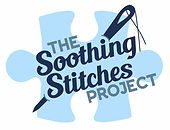Autism & Suicide
Every time I hear the word suicide, it throws me back to June 1992. At the age of 16, my first boyfriend committed suicide. He was 21 years old. I was finishing up my junior year of high school and was absolutely devastated. We were to see each other the very next day. He lived about an hour away, so it was a big deal to spend time together. Plus, it was supposed to be a surprise. I was not to know that he was coming, and learned of this tragedy on accident from a friend's mother.

I was just calling to see if one of our mutual friends was still home. If he wasn't, I know they had left to drive into town, and to be ready. Oh, and act surprised. I spent the following days, weeks, months, and years, blaming myself for being so blind. How could I not see it? How could I not know? What kind of person was I that the thought of him and suicide in the same sentence didn't exist in my head? Until, that was the only thing in my head. Dale was the quintessential life of the party. From the very first time I met him, he lit up the room. His infectious smile, warmth, and wild personality. He was a smooth talker and knew how to work a room. There was a suicide note left behind to explain, but even after all these years I don't really know what it said. I know he loved me as best he could at the time, and that he was suffering. I struggled with that for a long time.
Today, I still struggle. It is not just because I couldn't save him, it's because I have a child with Autism. A child who, by recent statistics, is 28 times more likely to commit suicide than one of his typical peers.

A child who, at the age of 9, had suicidal ideations and ended up in the emergency room because he thought the only way to stop his thoughts and feelings was if he "wasn't alive anymore." That was the second time in my life I had to deal with suicide head-on. This time around, I am hyper-aware of when my child is struggling, emotional, over his head, and needs me. I swear to God, five minutes ago as I was typing this post, he bolted in from outside. He was crying and scared. I asked him what was wrong, and he said "those thoughts again". Minutes ago. He said he was scared and he needed us and didn't want to leave. When these thoughts grip his mind, it takes over every sense, every second, until it runs its course and he gets through it.
Now, in my rational mind, I know as a 40-something woman today, that I could not have saved Dale's life. I know that. I accept it. It took me decades, but I do accept it. However, every time my son's anxiety hits the roof, every time my husband has a bad day, every time my daughter says she is stressed, every time one of my sisters calls with a crisis, and any time anyone I know has hit rock bottom I am forced to think, "would they do it too?" Would they commit suicide if they can't find a way out of whatever is troubling them? I believe this is the after affect of living through my experience back in 1992. I have been scared beyond belief that anyone I love would leave that same way. And I still am, everyday. It's not something I could probably ever shake. Suicide is such a intense, personal experience. Mental illness, drug abuse, alcoholism, stress, bullying, etc.

These are all common reasons as more and more people are dying everyday. There are television shows and books about it. Everyone seems to know someone that has committed suicide. Celebrities, public figures, the guy down the street, a friend from work or school. It does not discriminate. The numbers are increasing, the ages are decreasing. Do I believe it is selfish to commit suicide? Absolutely not. The pain that victims suffer is unimaginable. It is unbearable. I am raising a child, who statistically has the odds stacked against him, and I see it every single day. He knows he has me. He has his father. He has his sister. He has his family. But what about the ones who are not so fortunate? The ones who suffer silently? The ones afraid to reach out for help? Children, adults, seniors, veterans, homeless, addicts. Can all these people be selfish for being in such an intense pain that they felt the only way out was to be kill themselves? When your own pain supersedes the pain caused to your loved ones by committing suicide, it is a tragedy all the way around. Period. Everyone has lost.
In a conversation I didn't imagine telling my own children at such young ages, both of them now know about Dale. They don't know his name, they don't know any of the details. They know that, "When Mom was a young girl, she had a friend who was in a lot of pain and committed suicide."
They know I am all theirs, and that nothing, and I mean NOTHING they do is ever bad enough to consider suicide as an option. I may not have had the wisdom, experience, or strength to save Dale. However, my feelings regarding this have not been in vain. They are a part of who I was then, who I am now, and who I will be in the future. They have shaped me into the strong woman I am everyday.
If you or someone you know needs help, please call the National Suicide Prevention Hotline. They are open 24/7 and have counselors available. 1-800-273-8255
Please remember that not everyone who is contemplating suicide will tell you. Be an advocate for someone. Notice changes in mood, personality, social habits, changes in eating or sleeping, etc.




